The four candidates invited were Brian R. Pinkston (D), Juandiego Wade (D), Nikuyah R. Walker (I), and Yas Ariel J. Washington (I) and they accepted the invitation to participate in a Candidates Forum to be held on September 8. The four were running to fill two seats for the Charlottesville City Council. The forum was planned to be in-person at The Center at Belvedere and simultaneously broadcast via the Zoom internet platform. Ten days before the program, Ms. Walker notified SSV that she would participate via Zoom but not in-person. Then, the morning of the program, she announced that she had withdrawn her candidacy and therefore would not participate.
Once the forum began, the audio for the in-person audience was good, but unfortunately the audio signal going out for the Zoom audience was so severely corrupted as to be indecipherable. Also because of this, no recording was available to produce a podcast or video of the event. Isabel Cleary, multimedia journalist with WVIR NBC29 News, covered the entire event and generously provided the SSV media team with copies of her files, but still there was insufficient audio to produce a complete record of the event.
The program was moderated by SSV member Bob Beard. Bob is a former news anchor with CBS 19 in Charlottesville and a longtime reporter in Washington, D.C., including CNN, NBC and Reuters.

Program Summary
The forum was covered by both WVIR NBC29 and The Daily Progress. Their summaries of the meeting follow.
Ms. Cleary’s NBC 29 News coverage can be viewed by clicking on this link: Charlottesville City Council candidates gather for forum (nbc29.com)
Here is the text of her coverage:
Charlottesville City Council candidates gather for forum
Isabel Cleary, WVIR NBC29 News multimedia journalist
CHARLOTTESVILLE, Va. (WVIR) – Charlottesville City Council has two of five seats up for election this November and on Wednesday, September 8 candidates gathered to discuss important issues for the city including Police Chief RaShall Brackney’s firing and vacant business on the Downtown Mall.
While each candidate did not really get into their own opinion on Brackney’s firing, they each said new leadership in the department is necessary.
“Over the past three to four years Charlottesville has seen four police chiefs. I believe we would like to have one that is going to be in it for the long run and one that can uphold ethical policing, make sure that they are attending trainings,” candidate Yas Washington said.
“I would not want to venture to speculate to what took place, I do know that if elected I will work with the City Council and the public to hire a police chief so that we can move the city forward,” candidate Juandiego Wade said.
“I am optimistic that we are going to find someone that will be a better fit for our community. The change in management is really hard and its hard to move an organization from one state to another state, particularly when in something like policing. There are a lot of cultural changes that need to happen,” candidate Brian Pinkston said.
Another issue candidates addressed was vacancies on the Downtown Mall and how to support businesses.
“We need to support them because they not only are bringing tax revenue but they employ our residents, they employ us and so we are all in this together,” Wade said.
“If we want to do the things around equity that we keep talking about then we have to have that private sector and do all we can to support programs,” Pinkston said.

The forum also received extensive coverage by the Charlottesville Daily Progress and that can be viewed by clicking on this link:
City Council candidates talk equity, major issues facing the city at candidates forum | Latest News | dailyprogress.com
Here is the text of Ms. Bixby’s coverage:
City Council candidates talk equity, major issues facing the city at candidates forum
Ginny Bixby. The Daily Progress city reporter
Charlottesville City Council candidates discussed the firing of Police Chief RaShall Brackney, school reconfiguration, the Future Land Use Map and other issues affecting the city during a candidates forum on Wednesday afternoon.
The forum, held at The Center at Belvedere auditorium, was hosted by the Senior Statesmen of Virginia, a nonprofit that aims to keep seniors informed about the work of the local and state government and various political issues. The forum was simultaneously broadcast via Zoom webinar.
Democratic nominees Brian Pinkston and Juandiego Wade and independent candidate Yas Washington participated in the forum. Mayor Nikuyah Walker was previously slated to participate but withdrew from the election earlier in the day.
The debate was moderated by Bob Beard, a former news anchor with CBS 19 and a longtime reporter with CNN, NBC and Reuters. Members of the audience could submit questions both in person and through Zoom.
Beard opened the forum by asking the candidates for their thoughts on the sudden termination of Brackney’s contract.
The candidates were hesitant to offer an opinion on Brackney’s termination, saying they don’t have a full understanding of the situation, but they offered their perspectives on how the police department should move forward.
Washington, an entrepreneur, said she believes it is important to reimagine policing in the wake of the Black Lives Matter movement and the death of George Floyd, including ensuring representation for communities of color.
“We need to make sure individuals are represented,” Washington said. She said she wants the city to hire a police chief who will “enforce ethical policing for the long run.”
“I don’t want to speculate on what took place,” said Wade, a current school board member. He said he has had positive experiences working with Brackney.
“If elected, I will support the City Manager and City Council in hiring a police chief … That’s one of the critical leadership positions that the city needs to hire,” Wade said.
Pinkston, a project manager, pointed out that all three candidates are supportive of the existence of the Police Civilian Review Board and that he thinks it is an important resource moving forward.
“I think that Chief Brackney was trying to make some important changes,” Pinkston said. “But I am optimistic that we’re going to find someone that would be a better fit for our community … There’s a lot of cultural changes that need to happen.”
Beard asked each candidate what they felt were the most important issues facing Charlottesville.
Washington said she feels the most strongly about environmental sustainability, public safety and affordable housing. “We’ve seen an increase in the population, we’ve grown as a city. Now is the time for development to take place,” Washington said.
Pinkston said he’d prioritize positive relationships between councilors, affordable housing and equity. “We really need to have a stable government in city hall … having the City Council functioning as a team,” Pinkston said. “Disagreement is an important part of the democratic process. But internal disagreement in this council has had some negative effects.”
Wade said his top three issues are leadership and stability, economic development and public safety. “We have to get our hands around public safety … and that’s going to take working with the police department but also community nonprofits and individuals,” Wade said.
All three candidates voiced their support for affordable housing being worked into the Future Land Use Map.
Pinkston acknowledged how controversial the map has been from many different perspectives, and commended the Cville Plans Together team for trying to “thread the needle” between these contrasting views. He wants to address the legacy of redlining in the city.
“In Charlottesville … we care for one another. Homeownership is so tied into the equity conversation for persons of color,” Pinkston said. “I don’t support density for density’s sake,” Pinkston said. “But I think density should be tied into affordability.”
Wade said he thinks it’s important to address concerns about redlining but also be realistic about the need for affordable housing. “I know people on both sides of the issue … This is a big issue,” Wade said. “I don’t know the answer.”
Wade said he wants to figure out a way to address the rising prices of housing in the city. He would like to see more of a variety of home prices and types as opposed to a stark divide between single family homes and public housing complexes.
“We need to look at what affordable housing looks like,” Washington said. Similarly to Wade, she said it’s important to have different types of affordable residences available, and that seniors and families need different things, for example.
All three candidates supported reconfiguration of Charlottesville City Schools.
Wade cited his 16 years on the school board and said he looks forward to making improvements for Charlottesville students. He said it’s important for the City Council and school board to compromise. “We’ve been talking about this for all my 16 years,” Wade said. “There needs to be some modernization … The plans for what we want to do could be really spectacular, amazing work.”
Pinkston said he supports reconfiguration but feels the city needs to determine a practical way to fund it. “We need to minimize the number of transitions … and look at this from an equity perspective as well,” he said.
Washington said she supports reconfiguration but wants sustainability to be prioritized. She also said she supports working a charter school system into the reconfiguration to give students more opportunities.
The City Council election is Nov. 2. Early voting will begin Sept. 17 at the Department of Voter Registration and Elections and will run Monday through Friday from 8:30 a.m. to 4:30 p.m. until Oct. 29.
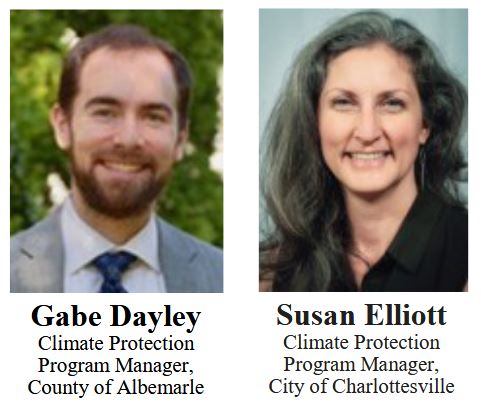




 who is the Warner-Booker Distinguished Professor of International Law at the University of Virginia. Born and raised in Richmond, Virginia, Professor Howard is a graduate of the University of Richmond and received his law degree from the University of Virginia. He was a Rhodes Scholar at the University of Oxford, where he read philosophy, politics, and economics. After graduating from law school, he was a law clerk to Justice Hugo L. Black of the Supreme Court of the United States.
who is the Warner-Booker Distinguished Professor of International Law at the University of Virginia. Born and raised in Richmond, Virginia, Professor Howard is a graduate of the University of Richmond and received his law degree from the University of Virginia. He was a Rhodes Scholar at the University of Oxford, where he read philosophy, politics, and economics. After graduating from law school, he was a law clerk to Justice Hugo L. Black of the Supreme Court of the United States.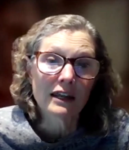 Jill Trischman-Marks is a landscape architect with almost 30 years of experience in the Central Virginia area. Jill holds a Master’s Degree in Landscape Architecture from the University of Virginia. Projects she has worked on include the five original gardens at the Lewis Ginter Botanical Gardens in Richmond, the Thomas Jefferson Parkway in Charlottesville, and the Poplar Forest entrance road and trails in Forest Virginia.
Jill Trischman-Marks is a landscape architect with almost 30 years of experience in the Central Virginia area. Jill holds a Master’s Degree in Landscape Architecture from the University of Virginia. Projects she has worked on include the five original gardens at the Lewis Ginter Botanical Gardens in Richmond, the Thomas Jefferson Parkway in Charlottesville, and the Poplar Forest entrance road and trails in Forest Virginia.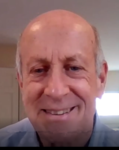
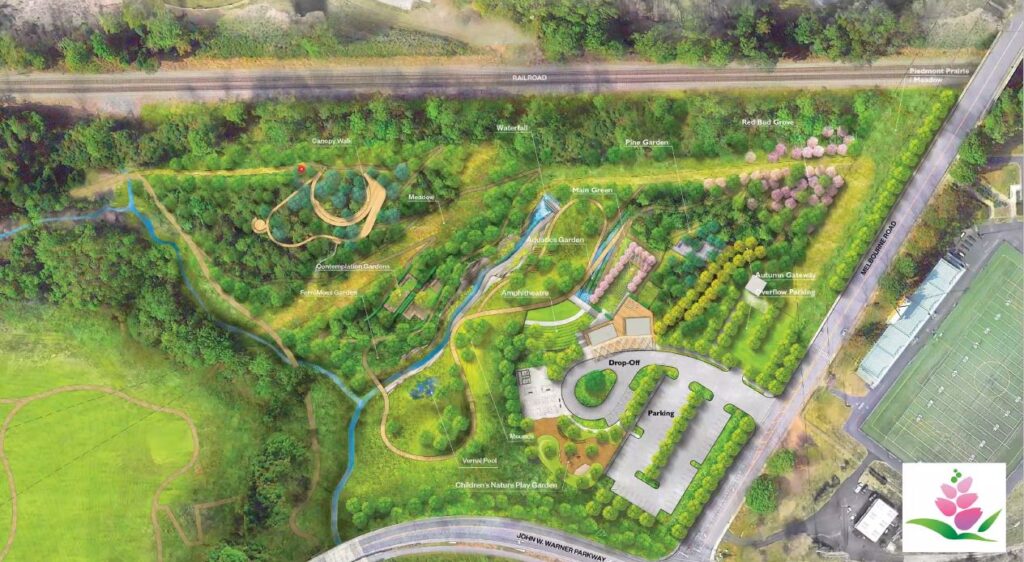
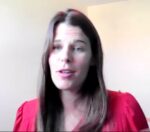 Elizabeth Beasley is in the Office for Diversity, Equity and Inclusion where she is director of community partnerships. In addition she is a member of the President’s Council on University-Community Partnerships and cochair of its Public Health Work Group. She began her presentation answering the question, “What is the difference between “equal” and “equity.” Equal implies that there is a one size fits all resolution to an issue. Equity is different in that it is an intentional way of equalizing responses according to the needs of the recipients. The goal of the President’s Council is to build partnerships with the community such as using local vendors, improving public health and public housing. Practicing good neighbor ethics, pursuing actions with mutual benefits and building authentic partnerships are ways of achieving equity between UVA and the local community.
Elizabeth Beasley is in the Office for Diversity, Equity and Inclusion where she is director of community partnerships. In addition she is a member of the President’s Council on University-Community Partnerships and cochair of its Public Health Work Group. She began her presentation answering the question, “What is the difference between “equal” and “equity.” Equal implies that there is a one size fits all resolution to an issue. Equity is different in that it is an intentional way of equalizing responses according to the needs of the recipients. The goal of the President’s Council is to build partnerships with the community such as using local vendors, improving public health and public housing. Practicing good neighbor ethics, pursuing actions with mutual benefits and building authentic partnerships are ways of achieving equity between UVA and the local community. Putnam Ivey de Cortez from Albemarle County’s Office of Equity and Inclusion coordinates programs for the county government. The mission statement of this program is to improve the well being and quality of life for all community members. In order to accomplish this goal, understanding the issue more thoroughly is essential so, the speaker presented several demographic studies. For example, factors affecting health were found to be 20% clinical care, 30% health behaviors, 40% socioeconomic factors and 10% physical environment. These statistics provide the foundation for determining the work the staff is trained to do. Currently the county is revising their comprehensive plan and soliciting a broad selection of its citizens to give their input. If you are interested learn more and apply at engage.albemarle.org/AC44workinggroup.
Putnam Ivey de Cortez from Albemarle County’s Office of Equity and Inclusion coordinates programs for the county government. The mission statement of this program is to improve the well being and quality of life for all community members. In order to accomplish this goal, understanding the issue more thoroughly is essential so, the speaker presented several demographic studies. For example, factors affecting health were found to be 20% clinical care, 30% health behaviors, 40% socioeconomic factors and 10% physical environment. These statistics provide the foundation for determining the work the staff is trained to do. Currently the county is revising their comprehensive plan and soliciting a broad selection of its citizens to give their input. If you are interested learn more and apply at engage.albemarle.org/AC44workinggroup.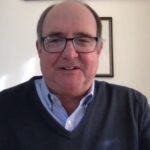 Bob Beard moderated the program. He is an SSV board member and a former news anchor with CBS 19 in Charlottesville and a longtime reporter in Washington, D.C., including CNN, NBC and Reuters.
Bob Beard moderated the program. He is an SSV board member and a former news anchor with CBS 19 in Charlottesville and a longtime reporter in Washington, D.C., including CNN, NBC and Reuters. Ngiste Abebe is vice president of public policy at Columbia Care, one of the nation’s leading medical cannabis companies. She serves as the president of the New York Medical Cannabis Industry Association and on the board of the District of Columbia Cannabis Trade Association. Prior to that, she was co-founder of Undaunted Ventures, a political consulting firm which specializes in innovative narrative, training, and leadership coaching services, and which grew out of her work training progressive organizations and working on campaigns across Virginia. She is the co-founder and co-director emerita of New Leaders Council Virginia, a progressive leadership institute. Ngiste holds a BA in Public Policy from the University of Chicago and a Masters in Public Policy and Management from Carnegie Mellon University. She’s a NORML board member, vice president of Public Policy for Columbia Care (industry-leading medical marijuana dispensary) and newly appointed by Governor Northam to the Cannabis Public Health Advisory Board. She happily gives and receives recommendations for sci-fi novels and board games.
Ngiste Abebe is vice president of public policy at Columbia Care, one of the nation’s leading medical cannabis companies. She serves as the president of the New York Medical Cannabis Industry Association and on the board of the District of Columbia Cannabis Trade Association. Prior to that, she was co-founder of Undaunted Ventures, a political consulting firm which specializes in innovative narrative, training, and leadership coaching services, and which grew out of her work training progressive organizations and working on campaigns across Virginia. She is the co-founder and co-director emerita of New Leaders Council Virginia, a progressive leadership institute. Ngiste holds a BA in Public Policy from the University of Chicago and a Masters in Public Policy and Management from Carnegie Mellon University. She’s a NORML board member, vice president of Public Policy for Columbia Care (industry-leading medical marijuana dispensary) and newly appointed by Governor Northam to the Cannabis Public Health Advisory Board. She happily gives and receives recommendations for sci-fi novels and board games.
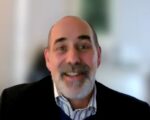
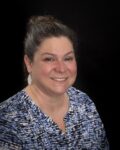 Kim Volker is the manager of Central Virginia with Care is There, a Geriatric Care Management Company. She works with lifestyle coordinators, clients and referral sources and enjoys being able to service the agency’s clients and families as they navigate through the process of aging. She always told her father that he was committed to her continued education and she was privileged to be allowed to take care of him. Kim can now serve others from that experience.
Kim Volker is the manager of Central Virginia with Care is There, a Geriatric Care Management Company. She works with lifestyle coordinators, clients and referral sources and enjoys being able to service the agency’s clients and families as they navigate through the process of aging. She always told her father that he was committed to her continued education and she was privileged to be allowed to take care of him. Kim can now serve others from that experience.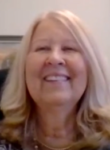 Sue Friedman, SSV Vice President, moderated the session.
Sue Friedman, SSV Vice President, moderated the session.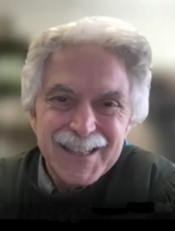 William Shobe, a professor at the Weldon Cooper Center for Public Policy at the University of Virginia and director of the Center for Economic and Policy Studies, reported on what studies tell us about the likely technology mix needed for a transition to carbon neutral by 2050, and the likely costs and benefits of getting there. Some of these studies model decarbonization of just the electricity sector, commensurate with the requirements of the Virginia Clean Economy Act, while others look at economy-wide decarbonization. He also discussed some of the key roadblocks that need to be addressed if the decarbonization goals are to be achieved at a reasonable cost. The program was moderated by Bob McGrath, past SSV president.
William Shobe, a professor at the Weldon Cooper Center for Public Policy at the University of Virginia and director of the Center for Economic and Policy Studies, reported on what studies tell us about the likely technology mix needed for a transition to carbon neutral by 2050, and the likely costs and benefits of getting there. Some of these studies model decarbonization of just the electricity sector, commensurate with the requirements of the Virginia Clean Economy Act, while others look at economy-wide decarbonization. He also discussed some of the key roadblocks that need to be addressed if the decarbonization goals are to be achieved at a reasonable cost. The program was moderated by Bob McGrath, past SSV president.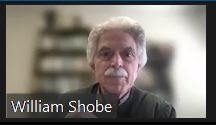 Professor Shobe spoke on the energy transition initiative that Virginia reduce electricity carbon emissions to net zero by 2050 and the pathways to reach this goal cost effectively. He discussed not only the opportunities to accomplish this, but also the roadblocks to getting there.
Professor Shobe spoke on the energy transition initiative that Virginia reduce electricity carbon emissions to net zero by 2050 and the pathways to reach this goal cost effectively. He discussed not only the opportunities to accomplish this, but also the roadblocks to getting there.

